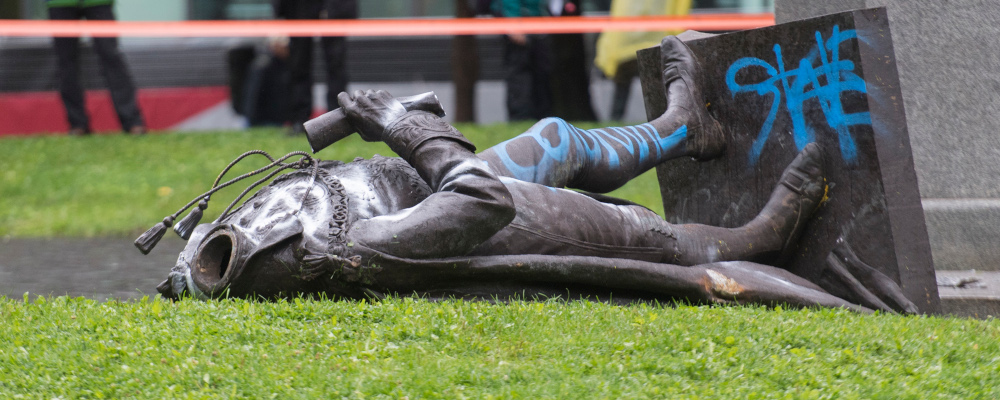In an article in The Hub, “Parks Canada chooses identity politics over giving Sir John A. Macdonald his due“, Senior Fellow at the Macdonald-Laurier Institute and Professor of Politics and Public Administration at Toronto Metropolitan University, Patrice Dutil criticizes Parks Canada for its portrayal of Sir John A. Macdonald at Bellevue House, arguing it diminishes his legacy by focusing on negative aspects of his career. Dutil contends that the restored site neglects Macdonald’s achievements in nation-building and institutionalising Confederation. He asserts that this approach, unfairly tarnishes Macdonald’s reputation and disregards the complexity of his contributions to Canadian history.
Coincidently on the same day this article was published I listened to speaker Rachel Luke. Ms. Luke currently serves as the Instructional Coordinator for African, Black, and Afro-Caribbean Student Success at the Peel District School Board (PDSB). Her role involves promoting equity, Indigenous education, school engagement, and community relations. Prior to this position, she taught at Glenforest Secondary School for 20 years. In recognition of her contributions to education, Ms. Luke received the Prime Minister’s National Award of Teaching Excellence in 2021, highlighting her dedication to student success and equity initiatives within the PDSB.

Dutil was not addressing the removal of a monument, rather his concern was on broadening the narrative to include some of the less savoury moments of a man’s life:
The opening ceremonies were clear: the mission of the reborn national site is not to celebrate Kingston’s most important (by far) citizen, a man who led a national party to six electoral majorities and who was joyously celebrated in his own lifetime even by his adversaries, but to trot out the usual tropes: he was a racist, a drunk, a man who hated Indigenous peoples to the point of starving them or forcing them to go to school. A man who probably did not like women or immigrants either.
Patrice Dutil in The Hub1
But after listening to Ms. Luke speak of the challenges faced by African-Canadians I realised there was a lot I didn’t know about this part of our history. As one colleague noted: “we were never taught this in school.” It struck me that if our existing monuments can’t be supplemented to fill this gap, then that part of our history is essentially being suppressed. Or as some might say, cancelled.
I agree that a balanced reporting of history and historical figures is important; excluding that which is uncomfortable does not make sense. While reasoned debate might be had on what information is included in this broadening effort, with respect to MacDonald’s legacy, I was left thinking I want to know more, not be protected from those things that some label as tropes.
- Dutil, Patrice. 2024. “Patrice Dutil: Parks Canada Chooses Identity Politics over Giving Sir John A. Macdonald His Due.” The Hub. May 22, 2024. https://thehub.ca/2024-05-22/patrice-dutil-parks-canada-fails-to-give-our-most-important-prime-minister-his-due/.
↩︎

Leave a Reply